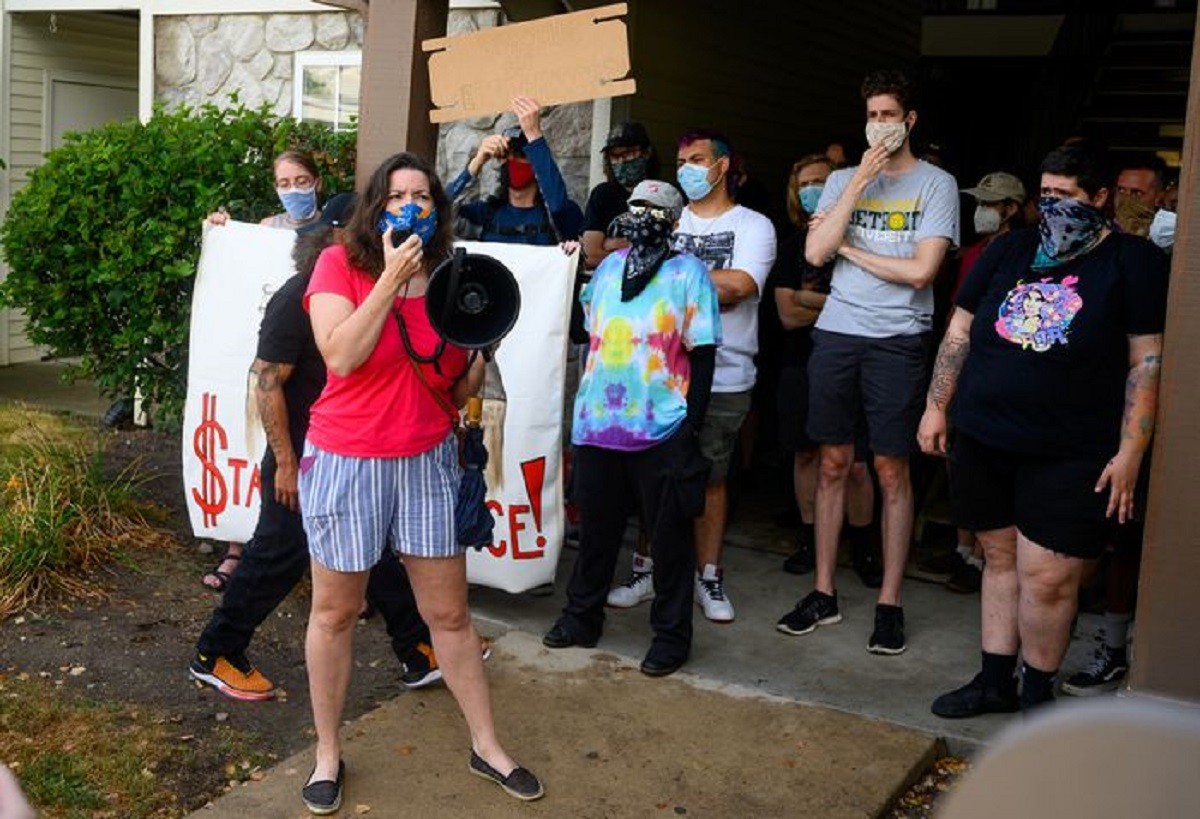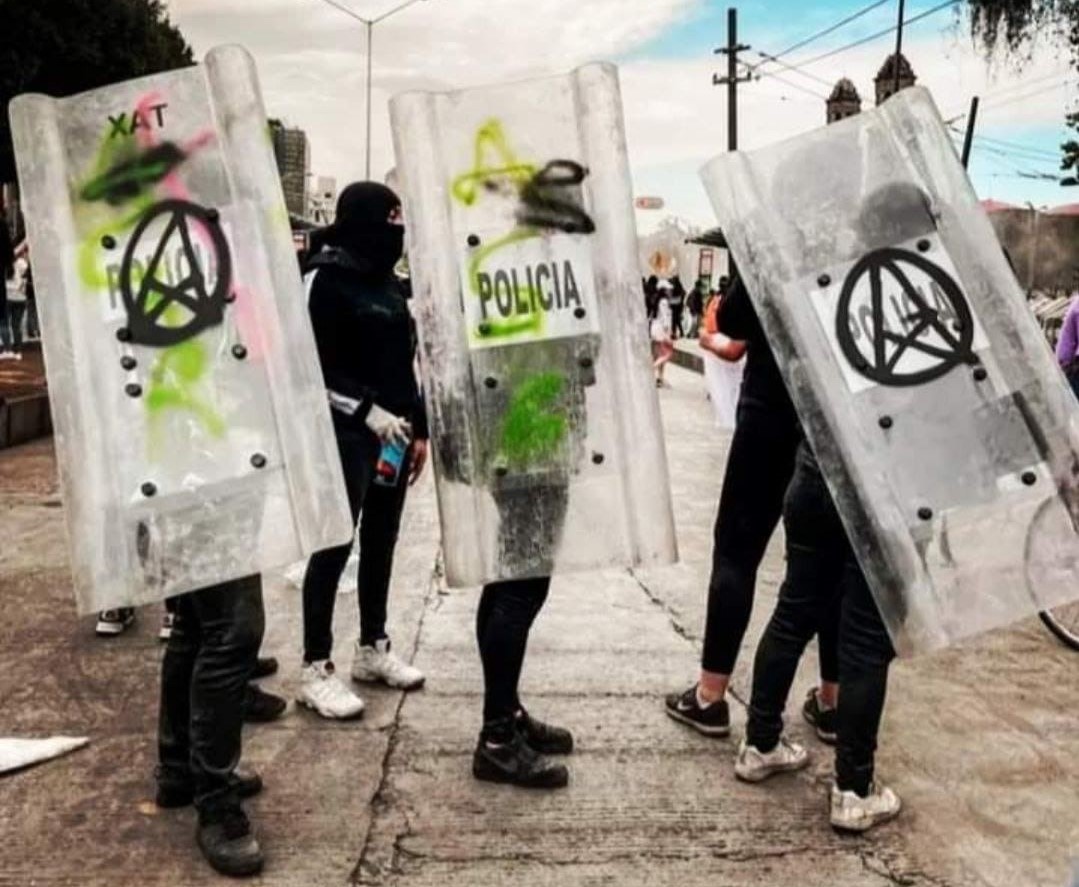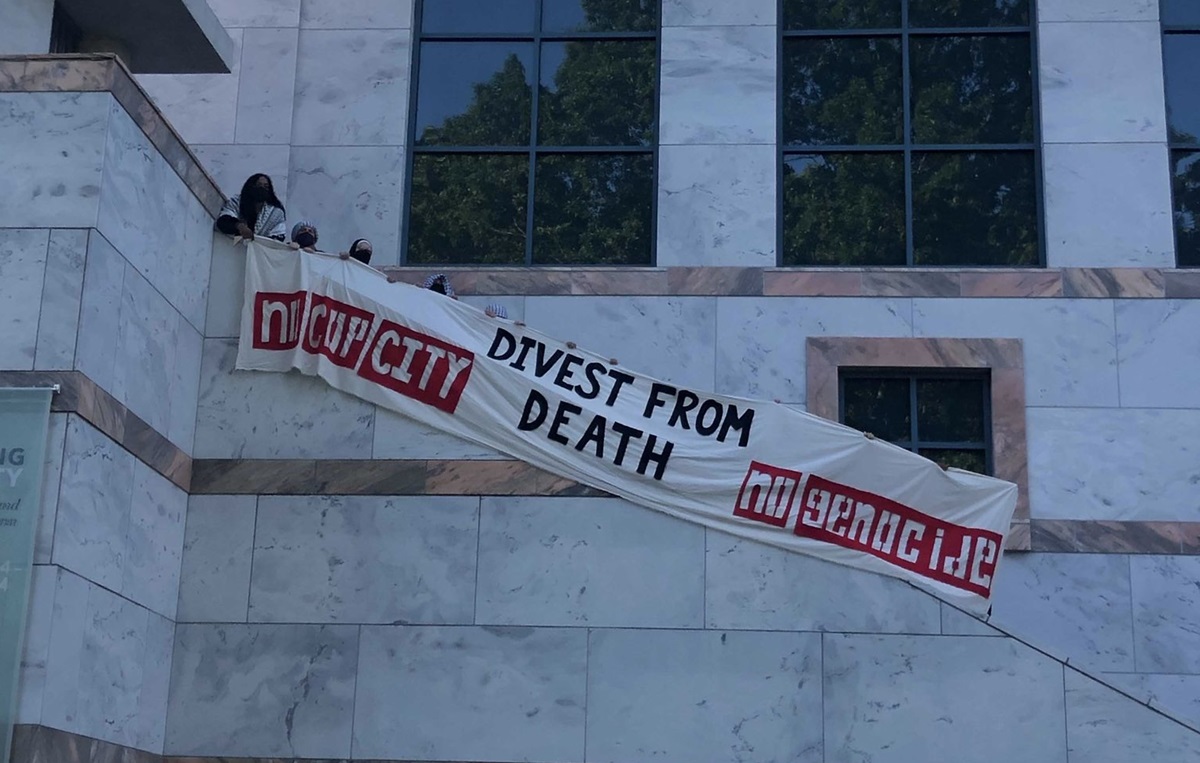
Solidarity and Defense looks at the growing need for a militant autonomous tenant movement in the face of the COVID-19 pandemic.
-written by BD and KS
It’s getting uglier all across the country. According to the latest update on the CDC Eviction Moratorium, landlords can proceed with evictions, get judgements, and enforce those judgements/evict people as of January 1, 2021. What use is this damn moratorium if people can be evicted in the dead of winter during a pandemic? If tenants can’t submit or don’t know how to submit the CDC declaration to their landlords, the landlords can proceed with evictions right now. We need to shut down the courts everywhere and organize with tenants, neighborhoods, and supporters to block and prevent evictions everywhere. We need to unite our forces to shut down the eviction courts and for community defense against evictions.
The economic impact of the pandemic continues to hit everyday people and their housing, and many have already been organizing to fight back. In Michigan, people have been coming out and opposing evictions from Detroit to Ann Arbor to Lansing and beyond. People are fighting evictions in cities like Toronto. In Kansas City, tenants have organized to chain the doors of the courthouse and shut down the eviction court. From Oakland to Philadelphia, people have occupied unoccupied housing, demanding the housing be made available to those who need it. Tenants are organizing and fighting across the region and across the country.
Excited to see the coming together of the @atun_rsia as tenant unions across North America are getting organized on a wider scale. We've been lucky enough to interview some of these groups over the years and look forward to covering what comes next! #TenantPower #ClassWar https://t.co/JSIR2LZ6Ki
— It's Going Down (@IGD_News) October 24, 2020
These are important developments. We need to try to learn the lessons from this continuing fight and develop our methods and tactics. Solidarity and Defense should join and support the fight to close the courts and for a nationwide and complete moratorium on evictions through the winter and so long as this health crisis continues. This fight includes cancelling rent and should include the fight to occupy and use unoccupied housing and to seize and occupy available housing where needed.
We also should continue and expand the fight against evictions. These tenant evictions can be short notice with little time to organize, and we need all the experience-tested ideas we can get. Given the advent of pandemic and the consequent recession, we also need to try out some newer ideas. With that said, here are some ideas on moving forward in this struggle:
1. Context and Status
We need to find out about the context of the eviction and the tenant’s situation. Speak with the tenant and find out the status of the case, whether the tenant has been to court, whether or not there has been a judgement, whether hearings have been scheduled, and read any notices the tenant has received from the court or the landlord. Determine whether the eviction is legal or illegal. Find out if the tenant has an attorney or needs one. If the tenant needs one, we should have resources like contact information of legal aid attorneys or other attorneys in the area. If there is nothing in court yet, the tenant should still contact the local legal aid provider or other attorneys to get legal advice and for help in negotiating with the landlord. Make sure that all agreements with the landlord are recorded in writing; never trust the landlord’s word. Figure out all the places we can act in support of the tenant in making the contacts and obtaining information (i.e. calling the court to check the status of any landlord-tenant case — this is public information). Tenant unions and eviction defense groups need to do all they can to make sure the tenant has an attorney for legal representation. This is a basic right, a due process right. Tenants and anyone facing eviction have a right to appear in court, to defend against the eviction with legal representation. Although we cannot and should not rely on the state and its courts, having an attorney may provide more ways to delay the eviction and gain more time to organize in defense against it.
2. Organizing and Publicizing
Talk with the tenant and figure out the issues and what the tenant wants to do. See if the tenant has friends, neighbors, family, co-workers, a union, a church or others who can assist. Discuss publicizing the issue with the tenant. Can we pressure the landlord, their attorneys, the management company, the court or the city to demand a halt to the eviction (in this era, for example, pressuring the courts to implement the CDC moratorium on evictions)? Can we use press releases or social media, picket lines, demonstrations or other actions to publicize the fight and organize to prevent the eviction? Discuss whether or not there are other tenants in the same complex or with the same landlord having similar issues. Tenants are much stronger when they join together in struggle.
3. Utilizing the CDC Moratorium and Pushing Beyond It
The Centers for Disease Control (CDC) issued a new federal, nationwide moratorium on nonpayment of rent evictions because of the health dangers of evictions/homelessness during the COVID crisis. But tenants must file a CDC Declaration with their landlords in order to qualify for this moratorium. Tenants must show they are attempting to get rental assistance or attempting to make some payments on the rent and certain other declarations. Many landlords are attempting to proceed with evictions even with the CDC moratorium; in Detroit, for example, Detroit Eviction Defense and others demonstrated recently at 36th District Court to demand to close the eviction courts and adopt a complete moratorium on all evictions as well as the cancellation of all rent. The CDC moratorium extends to December 31, 2020, but it does not cancel rent — therefore all of the rent is still due as of January 1, 2021. Many cities also have eviction diversion programs or rental assistance programs. Tenants unions and eviction defense organizations should provide contact information for tenants to contact any rental assistance programs available and be prepared to demand that rental assistance be made available — and ultimately that rent and rent debt be cancelled for the duration of this crisis. It’s important to make the demand on the courts and city/county/state governments to close eviction courts and prohibit all evictions during this crisis. This means no evictions through the winter and for the cancellation of rent. The courts are trying to reopen to proceed with evictions and serve landlords. In Detroit the Chief Judge says he will meet with protesters to discuss, but still wants to proceed with evictions with “safeguards.” It’s not safe to evict anyone during this crisis. The demand is no evictions through the winter — and as long as the health crisis continues. Evictions during this public health crisis are acts of extreme violence and cruelty.
4. Direct Action
If all other measures are unable to halt the eviction in time, we should organize direct action to physically and directly prevent the eviction if possible. Can we block the street or entrance to the apartment complex or house? Can we call for picket lines, occupations or blockades at the home? In order to make this a reality, it will probably be necessary for us to enlist the help of other groups (tenants unions, labor unions, community organizations, and so on) as well as the neighbors. See what the tenant wants to do — this can easily become a dangerous and volatile situation. Threats of arrest can be leveled at the tenant and those involved. Figure out all contingency plans if the bailiffs or cops are able to carry out the eviction, like plans to make sure belongings are secured and that the tenant has a place to stay in the event their home gets taken. If the eviction is illegal and the tenant has court or legal actions (on paper) that can prevent it, make sure we have them on us and are able to present them.
Across the US, millions of renters are threatened with evictions in the midst of the pandemic, ecological disaster + rising unemployment. Groups like @atun_rsia are building autonomous tenant unions on a neighborhood level to fight back. #CancelRent https://t.co/62V8XM4g3j
— It's Going Down (@IGD_News) September 13, 2020
The most important thing is for the tenant/tenants to be at the center of the fight against the eviction and for all of us to join in the fight in solidarity, rather than in directing roles. It’s important for the tenant/tenants to be making their own decisions in their fight, while we should be providing resources and discussion to help inform the tenant. Having an attorney allows the tenant to have a representative in the court and the case. Any attorney should represent the interests of the tenant and advise the tenant. This allows for some independence for the tenants. Some cases and fights can be won in the court — But in most situations, having the case in court can provide for some additional time to build the fight against the eviction and build public support.
Every case is different, but we need to develop our approaches and learn lessons as we go. Good intentions are not enough. We need to organize and fight. We need to use all methods which can assist in the fight. The courts serve the landlords and developers. We need independent organizations of tenants and supporters who fight to oppose evictions and who demand housing for all.




